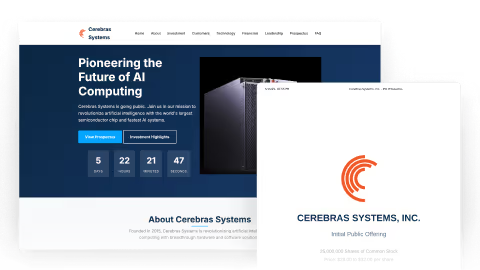Use Case
/
Academia
Provide research guidance for a paper on healthcare innovations
Model
•
Deep Researcher 2.0
I am working on a paper about recent healthcare innovations and their impact on patient care. I need guidance on the most significant advancements in this field, including technological, pharmaceutical, and procedural innovations. Please provide a comprehensive overview of the current state of healthcare innovations, including their benefits, challenges, and future directions. Additionally, suggest relevant research questions, methodologies, and potential sources for further investigation. The guidance should be structured in a clear and concise manner, with an introduction to the topic, a detailed analysis of the innovations, and recommendations for future research.
Recent Healthcare Innovations and Their Impact on Patient Care: A Comprehensive Overview
Introduction
Healthcare innovation has undergone rapid transformation in recent years, driven by technological advancement, pharmaceutical breakthroughs, and procedural improvements. This comprehensive review examines the current state of healthcare innovations and their impact on patient care, while identifying key challenges and future directions for research.
Current State of Healthcare Innovations
Technological Innovations
The healthcare sector has witnessed significant technological advancements:
- Telehealth and remote monitoring systems have become increasingly prevalent, enabling better access to healthcare services 8
- AI and machine learning applications are transforming diagnostics and patient monitoring 93
- Wearable health technology has evolved to provide more personalized and less invasive monitoring capabilities 91
- Digital health platforms are enabling real-time patient data collection and analysis 95
Pharmaceutical Breakthroughs
Notable pharmaceutical innovations include:
- mRNA technology development, recognized by the 2023 Nobel Prize in Medicine 71
- CRISPR gene-editing techniques for treating sickle cell disease 16
- First FDA-approved gene therapy (Roctavian) for severe Hemophilia A 72
- New clinical trials for mRNA-based vaccines targeting malaria and herpes 74
Procedural Innovations
Surgical and procedural advancements include:
- 3D printing for custom surgical implants 26
- Augmented reality systems for surgical navigation 27
- Virtual reality applications for surgical planning and training 28
- Minimally invasive surgical techniques with improved outcomes 15
Benefits and Impact on Patient Care
Improved Patient Outcomes
- Enhanced personalized healthcare delivery 3
- Better access to specialized care through telemedicine 8
- More accurate diagnostics through AI-assisted systems 85
- Reduced recovery times with minimally invasive procedures 49
Enhanced Healthcare Delivery
- Increased efficiency in healthcare delivery 6
- Better patient engagement and monitoring capabilities 89
- Improved data collection and analysis for treatment decisions 92
Challenges and Implementation Barriers
Technical Challenges
- Data security and privacy concerns 38
- Integration issues with existing healthcare systems 122
- Technical infrastructure limitations 33
Organizational Challenges
- Healthcare workforce adaptation to new technologies 120
- Training requirements and resource allocation 128
- Regulatory compliance and approval processes 100
Economic Challenges
- Cost of implementation and maintenance 61
- Return on investment concerns 22
- Healthcare system budget constraints 37
Future Directions and Research Opportunities
Emerging Trends
- Integration of IoT, AI, and blockchain technologies 44
- Expansion of personalized medicine approaches 75
- Advanced real-time patient monitoring systems 99
Research Questions for Future Investigation
- How does AI integration impact clinical decision-making accuracy?
- What are the long-term outcomes of mRNA-based therapies?
- How can healthcare systems optimize the implementation of new technologies?
Methodological Considerations
- Multi-disciplinary research approaches 43
- Combination of qualitative and quantitative methods 52
- Focus on patient-centered outcome measures 82
Recommendations for Further Research
- Conduct longitudinal studies on the effectiveness of AI-based diagnostic tools
- Investigate the cost-effectiveness of new healthcare technologies
- Examine patient perspectives on emerging healthcare innovations 81
- Study the impact of regulatory frameworks on innovation adoption 106
Conclusion
Healthcare innovations continue to transform patient care through technological, pharmaceutical, and procedural advancements. While challenges exist, the potential benefits warrant continued investment and research. Success will require careful consideration of implementation strategies, workforce adaptation, and regulatory compliance while maintaining focus on improved patient outcomes.
Explore Related Use Cases
Experience Ninja's AI Assistant
Try for free today. Plans starting at $19/month.




